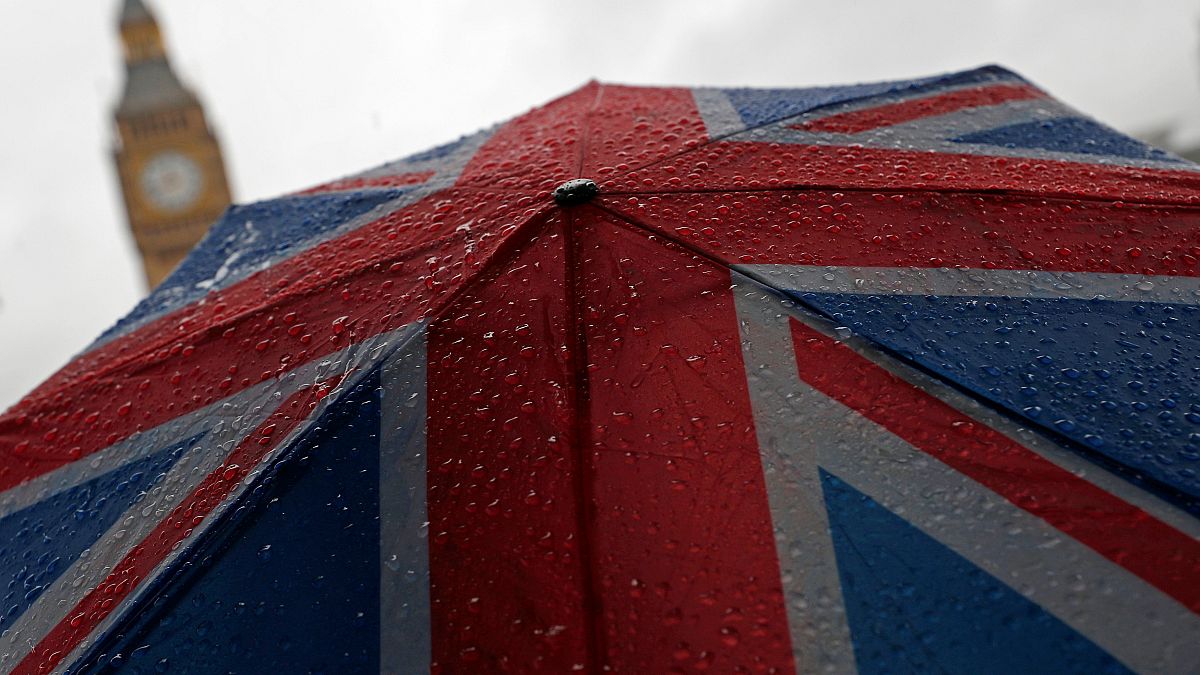The British government repeats calls for talks with Brussels to move onto trade, as new position papers include a proposal for goods and services to be treated together.
The British government has published more Brexit position papers setting out its negotiating aims, amid increasing pressure from London for talks with the EU to move on to future relations, especially trade. Brussels has consistently said that sufficient progress must be made on a divorce settlement first.
The latest two papers cover information sharing and the need for confidentiality when the UK leaves the bloc, and secondly the availability of goods. London wants goods made available before Brexit to still be available for sale in the EU and UK post-Brexit. In a departure from the EU’s proposals so far on the matter, this paper calls for goods and services to be treated as one rather than as separate issues – for example, a maintenance contract that comes with the sale of an elevator.
“These papers will help give businesses and consumers certainty and confidence in the UK’s status as an economic powerhouse after we have left the EU,” the UK’s Brexit Minister David Davis said in a statement. “They also show that as we enter the third round of negotiations, it is clear that our separation from the EU and future relationship are inextricably linked.”
It’s in the interests of the UK and EU to maintain our deeply integrated trading and economic relationship https://t.co/4fdiqsilempic.twitter.com/13lCrgWy0O
— Exiting the EU Dept (@DExEUgov) August 21, 2017
After claiming in May that differences including the timetable of the talks would provoke “the row of the summer”, Davis and the UK government appeared to accept the EU’s agenda. However, the sudden series of position papers are being accompanied by increasing calls once again for the negotiations to consider vital aspects of Britain’s future relationship, in tandem with separation issues.
“We have already begun to set out what we would like to see from a future relationship on issues such as customs and are ready to begin a formal dialogue on this and other issues,” Davis said.
The European Commission, mandated to conduct the Brexit talks, has already published numerous negotiating documents of its own – a fact which the Commission president’s cabinet chief Martin Selmayr tweeted as a reminder on Monday.
#Brexit negotiations led by .
MichelBarnier</a>: All EU27 positions published at <a href="https://t.co/WkbCYazEyD">https://t.co/WkbCYazEyD</a>. Note paper on governance. <a href="https://t.co/MlbfTQGBJ0">pic.twitter.com/MlbfTQGBJ0</a></p>— Martin Selmayr (MartinSelmayr) August 21, 2017
Slovenia’s Prime Minister Miro Cerar has voiced doubt that Brexit talks can move on to a next stage covering trade in October, as the UK hopes. “There are so many difficult topics on the table, difficult issues there, that one cannot expect all those issues will be solved according to the schedule made in the first place,” he told The Guardian.
EU leaders have repeated their insistence that agreement must first be reached on the UK’s divorce bill, citizens’ rights and the question of the Northern Irish border. This has not prevented the British government from shifting the debate onto other matters: its papers last week on future customs arrangements and Northern Ireland and Ireland will be followed this week by more documents, including the potentially explosive question of jurisdiction.
.
RhonddaBryant</a> – Government must address role of the ECJ in confidentiality of EU documents <a href="https://t.co/tAFzi7iEaq">https://t.co/tAFzi7iEaq</a> <a href="https://t.co/Xd25mp8gtw">pic.twitter.com/Xd25mp8gtw</a></p>— Open Britain (Open_Britain) August 21, 2017
Prime Minister Theresa May has promised that the UK will leave the remit of the European Court of Justice, and for many people who voted Brexit “taking back control” of the country’s laws was a key factor. However the EU wants the ECJ to have a role in enforcing citizens’ rights, and which body will oversee a future trade deal will need to be agreed. The EU’s stance has been underlined again by Selmayr whose tweet said “note paper on governance” – the document covering the court’s role.
According to the Financial Times, the Brexit Minister David Davis has suggested that as part of a “new and unique” dispute resolution mechanism, the court which deals with the European Free Trade Association (Efta) could provide a potential model. The government reportedly does not intend to propose the creation of a new court to settle post-Brexit disputes.
Separately, Brexit enthusiasts have seized on a report by ‘Economists for Free Trade’ which claims that the UK’s economy could be boosted by nearly 150 billion euros a year once the country leaves “the protectionist EU”. Led by pro-Brexit economist Patrick Minford, its conclusions have been savaged by other analysts as “laughable”, “nonsense” and for misjudging how trade works.
Responses to Minford #Brexit ‘report’…
NIESRorg</a> "ignores decades of evidence"<a href="https://twitter.com/jdportes">jdportes “Laughable stuff”Juergen_Maier</a> "utter nonsense" <a href="https://t.co/EM8k75nFhC">pic.twitter.com/EM8k75nFhC</a></p>— Peter Hoskins (PeterHoskinsTV) August 21, 2017
